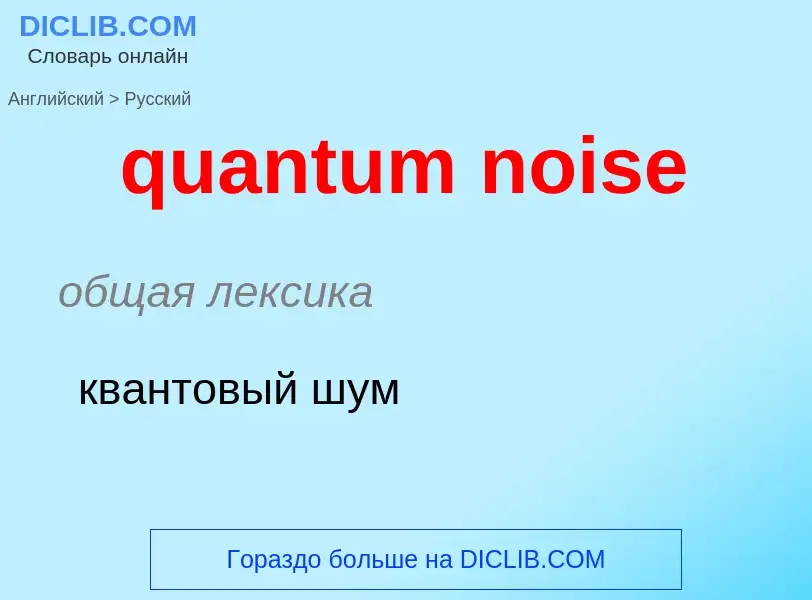Tradução e análise de palavras por inteligência artificial ChatGPT
Nesta página você pode obter uma análise detalhada de uma palavra ou frase, produzida usando a melhor tecnologia de inteligência artificial até o momento:
- como a palavra é usada
- frequência de uso
- é usado com mais frequência na fala oral ou escrita
- opções de tradução de palavras
- exemplos de uso (várias frases com tradução)
- etimologia
quantum noise - tradução para russo
общая лексика
квантовый шум
общая лексика
дробовой шум
дробовой эффект
тепловой шум
электроника
шум дробовый
нефтегазовая промышленность
помехи от взрыва (создаваемые движением газов и материалов, заполняющих скважину)
общая лексика
дробовой шум
Definição
Wikipédia
Quantum noise is noise arising from the indeterminate state of matter in accordance with fundamental principles of quantum mechanics, specifically the uncertainty principle and via zero-point energy fluctuations. Quantum noise is due to the apparently discrete nature of the small quantum constituents such as electrons, as well as the discrete nature of quantum effects, such as photocurrents.
Quantified noise is similar to classical noise theory and will not always return an asymmetric spectral density.
Shot noise as coined by J. Verdeyen is a form of quantum noise related to the statistics of photon counting, the discrete nature of electrons, and intrinsic noise generation in electronics. In contrast to shot noise, the quantum mechanical uncertainty principle sets a lower limit to a measurement. The uncertainty principle requires any amplifier or detector to have noise.
Macroscopic manifestations of quantum phenomena are easily disturbed, so quantum noise is mainly observed in systems where conventional sources of noise are suppressed. In general, noise is uncontrolled random variation from an expected value and is typically unwanted. General causes are thermal fluctuations, mechanical vibrations, industrial noise, fluctuations of voltage from a power supply, thermal noise due to Brownian motion, instrumentation noise, a laser's output mode deviating from the desired mode of operation, etc. If present, and unless carefully controlled, these other noise sources typically dominate and mask quantum noise.
In astronomy, a device which pushes against the limits of quantum noise is the LIGO gravitational wave observatory.


